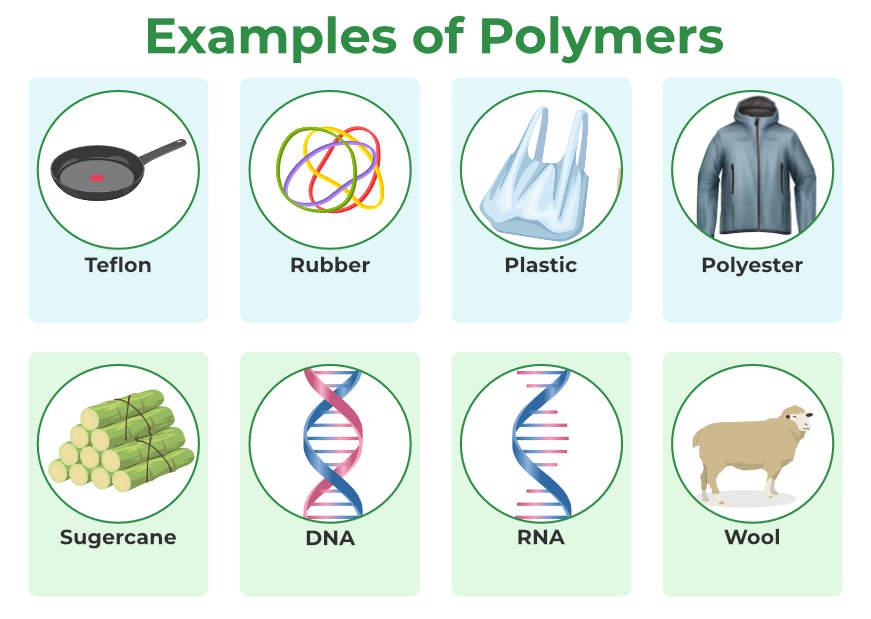High-Performance Polymers: Advanced Materials for Sector
High-Performance Polymers: Advanced Materials for Sector
Blog Article
Discovering the Varied Applications and Benefits of Polymers in Different Industries
Polymers, with their varied series of buildings and performances, have become indispensable in numerous sectors, each gaining distinct benefits from their application. Polymers. From boosting security and performance in the auto market to changing medical gadgets in the medical care sector, polymers play a crucial function. Their green nature is altering the landscape of sustainability methods. As we explore the midsts of polymers in electronics, we reveal innovative advancements, while their structural integrity transforms the realm of construction and infrastructure. The pervasive impact of polymers across sectors is a testimony to their versatility and adaptability, shaping the future of many sectors.
Automotive Industry Applications
Polymers play a critical function in improving the efficiency and durability of numerous components within the automobile industry. These flexible materials are thoroughly utilized in the manufacturing of various components, ranging from interior parts to under-the-hood applications. One popular use polymers in the automobile sector remains in the manufacturing of light-weight elements. By replacing conventional metal components with polymer-based alternatives, cars can attain better gas performance without endangering on stamina or safety and security.

Health Care Sector Advantages
In various healthcare applications, the benefits of using polymers are widely acknowledged for their diverse series of advantageous homes. Polymers play a crucial duty in the healthcare market as a result of their versatility, biocompatibility, and cost-effectiveness. Among the main advantages of polymers in health care is their capability to be tailored to particular demands, such as flexibility, toughness, and biodegradability, making them perfect for a wide variety of clinical applications.
Polymer-based materials are thoroughly made use of in clinical devices, such as catheters, implants, prosthetics, and medication delivery systems, due to their biocompatibility and capacity to mimic all-natural cells. These materials can lower the threat of allergies or denials, improving patient safety and end results. In addition, polymers are lightweight, making them ideal for wearable clinical gadgets and making sure patient convenience.
Additionally, polymers enable the growth of innovative treatment approaches, Extra resources such as hydrogels for tissue engineering and nanocomposites for targeted medicine distribution. Their ease of handling and sanitation makes them vital for keeping high requirements of health in medical care settings. In general, the diverse benefits of polymers contribute considerably to innovations in clinical innovation and patient treatment.
Environmental Advantages of Polymers

In addition, polymers can add to energy cost savings as a result of their light-weight nature. In markets such as transport, lightweight polymer products can help in reducing fuel consumption and greenhouse gas exhausts. In addition, polymers can enable the advancement of energy-efficient products such as insulation materials that enhance power conservation in structures.
Moreover, polymers play a vital role in decreasing water pollution. The use of polymer-based filtering systems can successfully eliminate pollutants and pollutants from wastewater, protecting water sources and environments. Overall, the ecological benefits of polymers make them important assets in promoting sustainability and green methods throughout various sectors.
Polymers in Electronic Devices and Modern Technology
Taking into pop over to these guys consideration the boosting demand for innovative and lasting remedies in modern-day sectors, the integration of advanced polymer innovations in the world of electronics and modern technology has arised as an essential technique for driving efficiency and efficiency. Polymers have actually revolutionized the electronics market by allowing the manufacturing of lighter, a lot more versatile, and long lasting digital devices. From smart devices to medical gadgets, polymers play a vital function in boosting product layout and capability.
One considerable advantage of polymers in electronics is their protecting residential properties, which aid shield fragile digital parts from ecological factors and electric interference. Additionally, polymers are vital in the advancement of versatile displays, wearable innovation, and published electronics, offering endless possibilities for creating smart and interconnected gadgets.
Moreover, making use of polymers in electronic packaging has resulted in advancements in miniaturization and thermal monitoring, boosting the total efficiency and dependability of electronic systems. As innovation continues to evolve, the versatility and adaptability of polymers will undoubtedly drive further innovation in the electronics industry, forming the future of innovation.
Duty of Polymers in Construction and Framework
The combination of sophisticated polymer materials in building and facilities jobs has changed the way frameworks are developed and developed in modern times. Polymers offer numerous advantages in the construction industry because of their adaptability, resilience, and cost-effectiveness. One essential function of polymers in building is their use in coverings and sealers, offering security against ecological elements such as moisture, UV radiation, and corrosion. In addition, polymers are utilized in the manufacturing of lightweight and high-strength composite materials, boosting the architectural honesty of structures while lowering general weight.
Furthermore, polymers play a vital role in sustainable construction practices by making it possible for the development of energy-efficient frameworks. Shielding products made from polymers aid control interior temperature levels, reducing the need for home heating and cooling systems and inevitably lowering power usage - Polymers.
Final Thought
In final thought, polymers play a crucial function in various markets such as automotive, healthcare, ecological, electronics, and building. From improving fuel effectiveness in automobiles to enhancing medical gadgets, polymers offer countless advantages.
Report this page